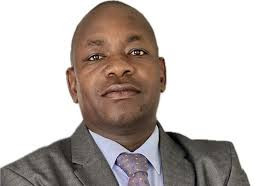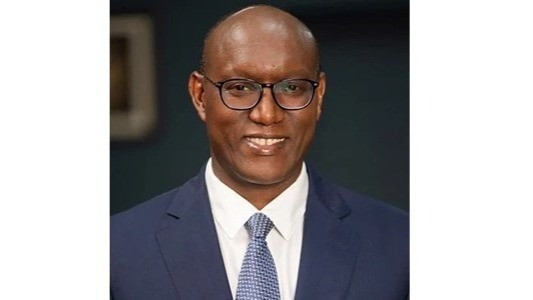
TENDI Mavura’s tomato fields in Mashonaland East are flourishing. But for years, his ambition was stunted by a simple fact that he was invisible.
Without a formal payslip or credit history, the financial world had no way to see the reliable, hardworking farmer he was. A bank loan for better seeds and irrigation equipment was a distant dream.
His story is not unique, but one shared by millions of Zimbabweans.
Across the country, from market traders in Mbare to artisans in Bulawayo, people are locked out of the formal economy.
But now, an unlikely tool is helping to bridge that gap: Artificial Intelligence, or AI.
Here, AI is not a complex science project. In simple terms, it is a clever computer programme that learns to spot patterns in data.
For Mavura, the most important data was not in a bank file. It was his history of regular mobile money transactions, his consistent purchases of phone airtime, and even the positive reviews from customers in his small WhatsApp group.
A local financial technology start-up fed this alternative data into its AI system.
- Time running out for SA-based Zimbos
- Sally Mugabe renal unit disappears
- Epworth eyes town status
- Commodity price boom buoys GB
Keep Reading
The algorithm did not see a risk; it saw a reliable businessman. It approved him for a small, digital loan sent directly to his mobile phone.
“I didn’t step my foot in a bank,” Mavura says. “The money came in minutes. I doubled my harvest this season.”
This is the new face of financial inclusion. In Zimbabwe, institutions are using AI to build credit scores from scratch by analysing how people use mobile money, pay bills, and use their phones. AI-powered chatbots answer customer questions at all hours. Other systems work to prevent fraud by spotting unusual transactions to protect people’s money.
The shift is revolutionising how large institutions operate.
“Our AI-powered know your customer (KYC) systems have cut onboarding costs by 70% — crucial for reaching rural populations and informal workers,” said Agrippa Mugwagwa, managing director of Xarani — FBC Holdings’ fintech subsidiary, while speaking at the Strategy Execution Advisory Talks Summit 2025 held in Victoria Falls recently.
FBC Holdings chairman Herbert Nkala revealed in the group’s half-year results for the year 2025 that they have embraced AI focusing on improved processes, product development and enhancements.
“These initiatives should result in improved efficiency, robust processes and superior customer service.”
The changes are profound at other firms, too.
Old Mutual has used robotic process automation to reduce manual workloads by 92%, cutting errors and costs. Its investments in AI now allow for hyper-personalised services, from assessing credit to managing funeral plans.
“The platform integrates US dollar and ZiG wallets, offering insurance, nano-loans and bill payments — all accessible via feature phones or smartphones,” said Samuel Matsekete, group chief executive officer of Old Mutual Zimbabwe while speaking at the same summit.
“This comes as 83% of adults now use formal financial services, up from 69% in 2014, with women’s inclusion rising from 68% to 83%.”
The company launched its O’mari mobile money wallet in 2023, positioning itself as a trailblazer in the sector.
Yet, the path forward is not smooth. High data costs, limited smartphone access outside urban areas, and a lack of clear government regulations pose significant challenges.
The potential, however, is undeniable.
Economist Stevenson Dhlamini from the National University of Science and Technology explains the larger impact.
“Financial inclusion, when driven by AI, has a significant impact on gross domestic product, especially through increasing financial inclusion, given that our economy is largely informal, and those that are in the informal sector are largely either underbanked or unbanked.”
He believes AI can bridge the information gaps that cause financial exclusion, a model proven in other countries.
“Banks were using AI to collect data about an individual or a business better than a human being would, and that increases chances of faster processing and reduces information asymmetry. All these go a long way towards financial inclusion and better accountability for the funds that are otherwise undocumented that the informal sector trades in.”
But he also sounds a note of caution, emphasising the need for guardrails.
“The fiscal and monetary authorities should put in place measures encouraging responsible innovation to ensure that AI is transparent and accountable. There needs to be a clear code of conduct in administering AI so that we guard against misuse that can lead to fraudulent activities,” he said.
“The Reserve Bank would need to put in place policies to safeguard against the exploitation of individuals using AI. Imagine if you are allowed to just drag a line to determine the size of the loan that you need.
“There's no due diligence on the part of the consumer, and they need to be protected against unintended consequences of using AI to make financial decisions, especially in the arena of borrowing.”
Ultimately, the drive for inclusion is also an economic imperative.
“Including our massive informal sector into the digital economy isn’t just a social good; it’s an economic necessity. AI is the most powerful tool we have to make that happen, potentially adding billions to our national economy,” Dhlamini says.
This view is shared by banker Gloria Ndoro-Mukombachoto, who sees AI as a fundamental catalyst for change.
“AI is not merely a tool for efficiency, but a catalyst for resilience, equity, and systemic capability,” she noted in one of her writings.
“Non-bank financial institutions can bridge the gap between formal financial systems and informal economic actors by delivering AI-enabled credit, savings, insurance and payments at scale, often with lower barriers to entry than traditional banks.
“AI contributes to a productivity escalator that is not merely about higher output but about more inclusive and sustainable growth.”
The future of finance in Zimbabwe may not be found in a brick and mortar branch on every corner. Instead, it might just be an intelligent, fair algorithm on the phone in everyone’s pocket, finally working to make the economy include all.











